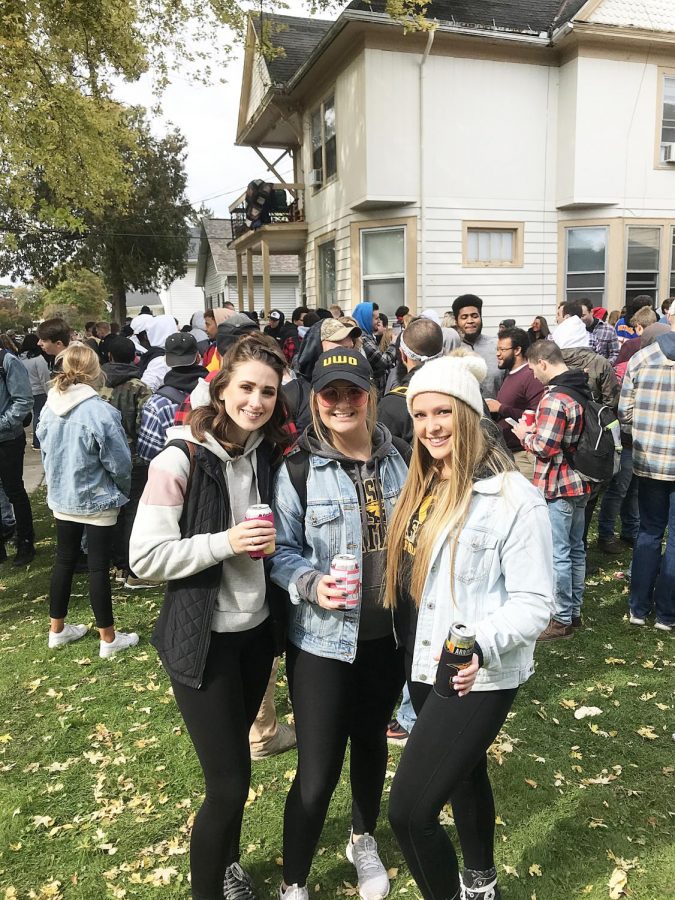Its something we do everyday, much of the time subconsciously. Without it, success is virtually impossible and the world around us would surely be a much different place. Reading may be the most essential skill for students in the modern era. Now, of course everyone enrolled at UW Oshkosh can read, but the real questions are how much and why. People read for an untold variety of reasons. Restaurant-goers read the menus when deciding on a meal; drivers read street sign to navigate the roadways; students read textbooks to study for exams. But how many people actually pick up a book with the intention of reading it cover to cover for no reason other than pleasure? In 2012 the Pew Research Center reported that only 52 percent of Americans aged 18-24 read a book solely for leisure. In the same year, almost a quarter of all American adults didnt read any books at all. These statistics should be alarming to anyone who values a well-informed, open-minded society. A population that doesnt read can seldom form well-rounded opinions, make intelligent decisions or participate in meaningful discussions. UWO English professor Ron Rindo said reading is an easy way to expand the boundaries that restrict people in their everyday lives. Reading moves us outside of ourselves and into the lives of others, often others who are radically different from us, Rindo said. In that way, we get to live multiple lives. Leisure reading also slows down our speed-of-light lives makes us take our time, immerses us in language that can help us see and understand things in new and more complex ways. As a student, its impossible to avoid reading, and for many the reading they do engage in is strictly for academic purposes. As a result, some students tend to think of reading as a chore something that they grudgingly do to appease their instructor and pass a class. While course materials certainly have their merit, the possibilities of reading extend far beyond the thick, dry textbooks of academia. It may seem obvious, but there are literally millions of poems, short stories, novels, magazines and articles available for students through libraries, bookstores and the internet. For students living a fast-paced life, leisure reading can easily fall to the bottom of their priority list. Free time is a precious resource for students who already balance an abundance of responsibility, so why should they spend it reading? Senior journalism major Haley Walters said leisure reading may not seem like the most exhilarating hobby, but has the potential to be entertaining and even fun to those who dedicate their time to it. I think a lot of people have the idea that reading is boring because theyve been forced to read pretty boring books in school, but theres so many cool authors and different styles in modern literature that put a lot of Netflix series to shame, Walters said. Its just a matter of finding something you like enough to devote some time to. Students who feel crunched for free time should consider cutting down on other activities that might not be as rewarding. Theres nothing easier than popping in a video game or browsing through the Facebook feed, but as many students will find out in their college career, the easiest route is rarely the best one. I do not think that students today spend nearly enough time on reading leisurely, senior English major Isabel Thyne said. Literature is the greatest cumulative source of history and modern commentary. We live in a generation that puts more time and energy into things like social media and pop culture, too often ignoring more meaningful forms of art. While things like Twitter and Grand Theft Auto definitely have their place in society, they can sometimes consume excessive amounts of students time. The instant gratification they provide can be incredibly tempting when compared to something that takes a more concentrated effort, like reading a novel. Rindo said things like social media are the literary equivalent to fast food. Twitter, Snapchat, Instagram and even text-messaging all push toward the brief, or the pithy, Rindo said. The danger is that complexity and context and nuance disappear. UWO English professor Stewart Cole had similar ideas. Cole said he thinks the advent of new technology and social media could potentially affect students reactions to what they read. On the one hand, students today have instant access to an unprecedented agglomeration of knowledge, and that presents incredible opportunities for improved expertise, awareness, and overall cultural literacy, Cole said. On the other hand, social media platforms favor quick reaction and truncated expression over careful consideration and nuanced articulation. We risk becoming a knee-jerk culture. Just like Americans will never stop eating fast food, students will never stop consuming the cheap information that things like television and social media provide and thats OK as long as they learn to balance it with more rewarding texts that leave an impression rather than create a void.
Categories:
Leisure reading must regain its place in modern society
April 29, 2015
0






